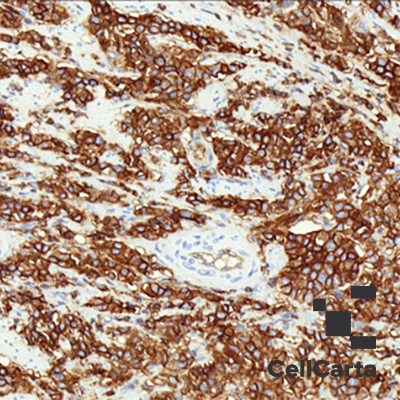
Test Description
Major histocompatibility complex class I (MHC-I ) molecules are expressed by most nucleated human cells. This class of molecules comprises human leukocyte antigens (HLA) HLA-A, HLA-B, and HLA-C. MHC-I play a pivotal role in immunosurveillance mechanisms, as they present intracellular antigens directly to CD8+ cytotoxic T-lymphocytes. Endogenous cellular proteins derived from virus infections, or tumor DNA mutations, are processed intracellularly and sectioned into small peptides. MHC-I molecules proceed to bind these peptides and carry them to the surface of the cell where they are able to interact with T-cells and Natural killer (NK) cells. This biological process ensures monitoring and elimination of infected or mutated cells by the cytotoxic lymphocytes. Research shows that tumors derived from MHC-I positive epithelia remain mostly positive at early stages of tumor development. However, tumors can display high, intermediate, and low MHC-I expression. Therefore, in some cases tumors can escape from immunity due to inadequate MHC-I-mediated antigen presentation. In light of this discovery, analysis of MHC-I expression in tumors has become an important tool in the study of tumor immune surveillance and tumor escaping processes. MHC-I expression is an important point to consider in development and application of immunomodulating drugs. Immunohistochemistry (IHC) at CellCarta is validated with an MHC-I antibody that detects HLA-A, -B, and -C. IHC at CellCarta has also been validated to detect HLA-A alone.